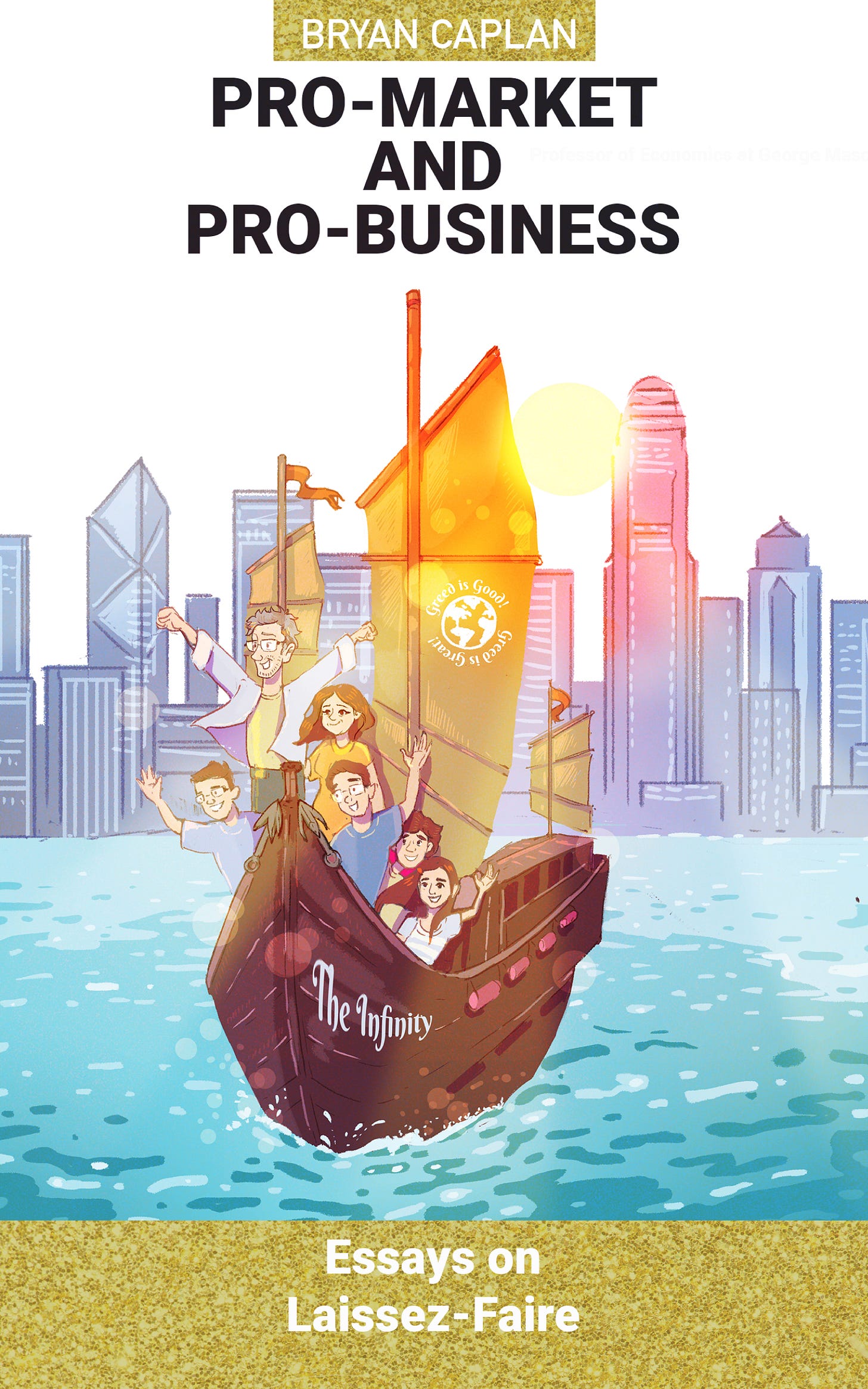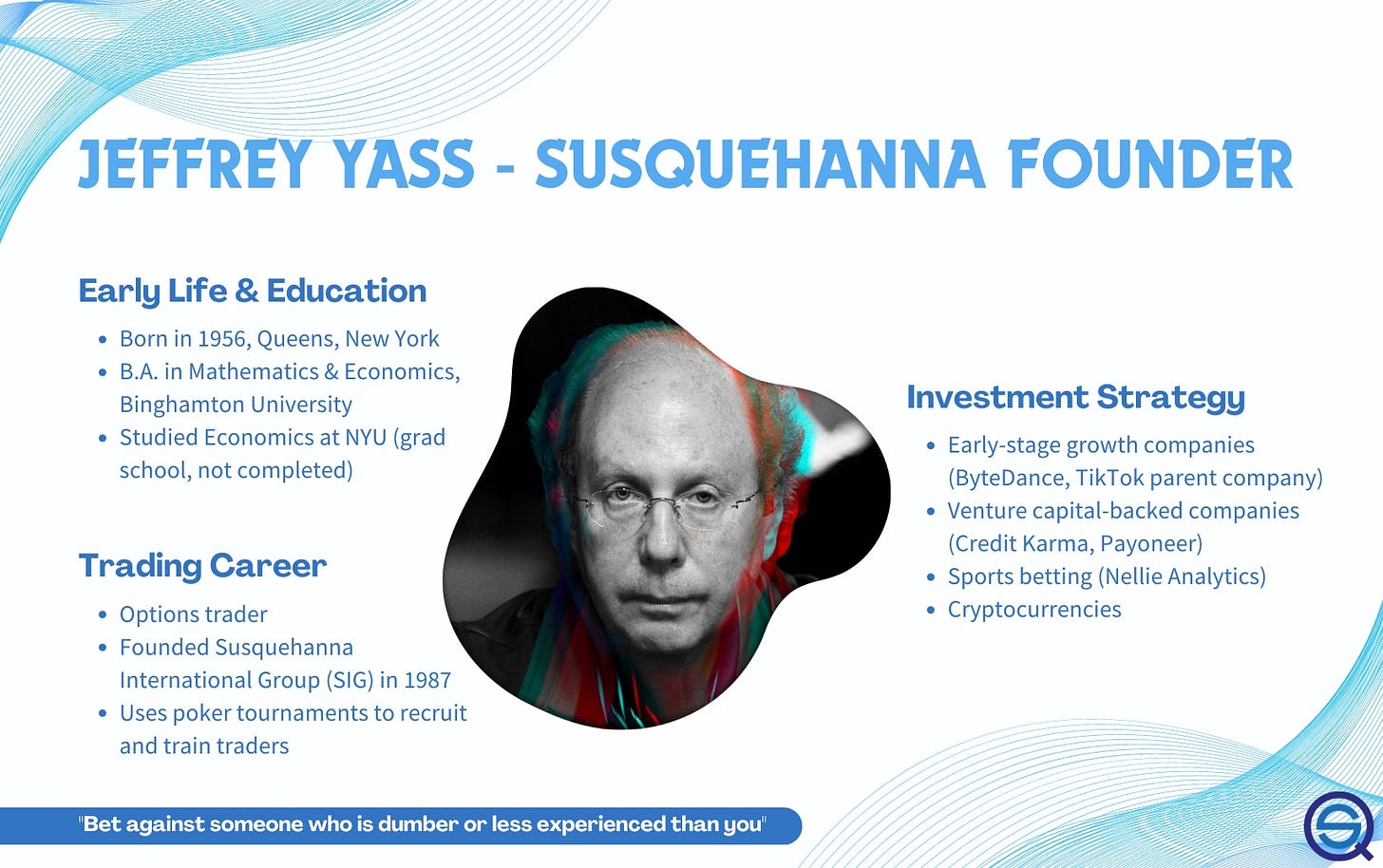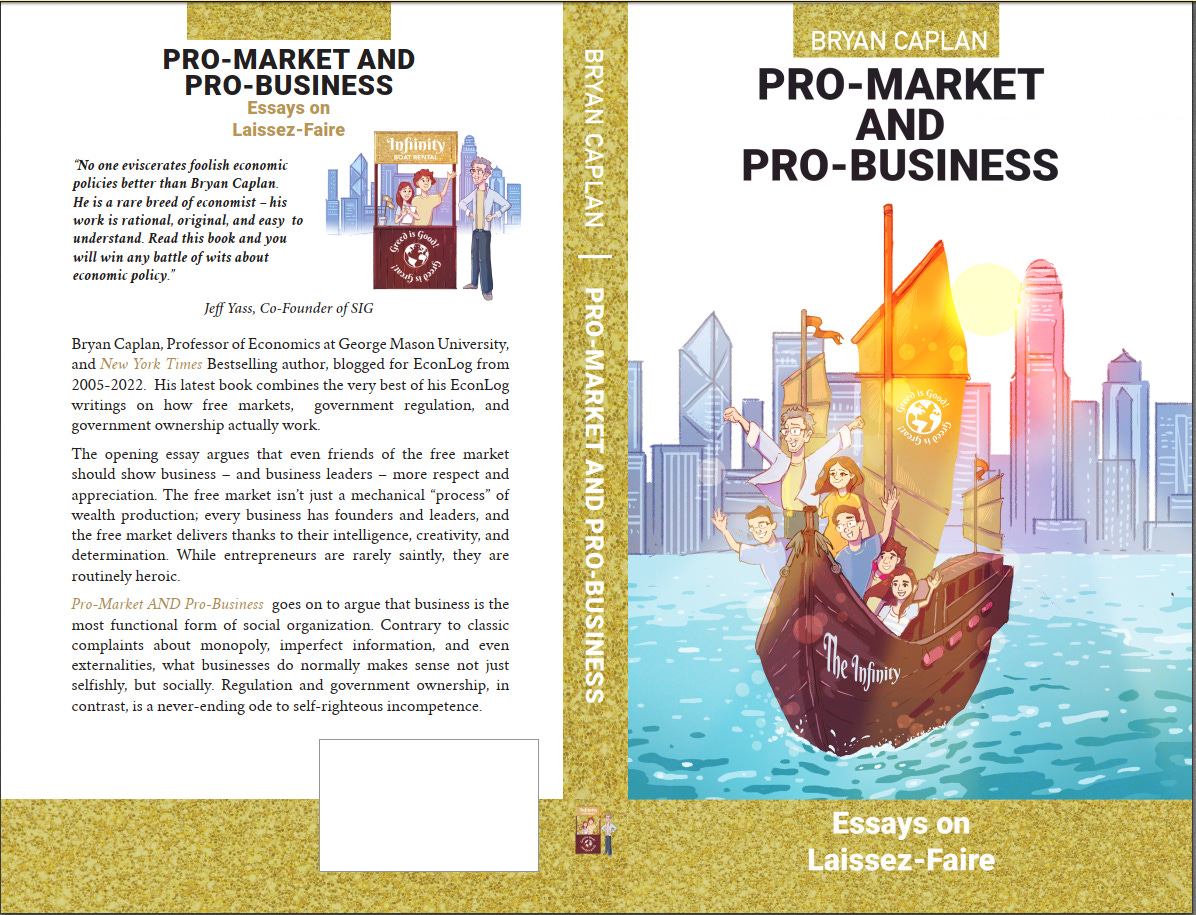Feeling Polyamorous... for Markets AND Business
*Pro-Market and Pro-Business: Essays on Laissez-Faire* is now on sale
I have plenty of polyamorous friends, but when they argue in favor of their romantic philosophy, I find them awfully naive. In the world of ideas, though, I enthusiastically embrace their central insight: You can feel true love for multiple ideas simultaneously. Verily, there is too much idea-worship in my heart to limit myself to any one idea. My latest collection of essays, Pro-Market and Pro-Business: Essays on Laissez-Faire, explores my twin passions for free markets and heroic business. Economists and libertarians who protest that they love only the former are cheating themselves.
What’s so lovable about free markets? You’ve heard the standard answers many, many times. Free markets deliver prosperity. Free markets deliver variety. Free markets deliver independence. Free markets deliver freedom.
What, though, is lovable about business? The essays in my latest collection praise business from many angles, but highlights include: Business delivers competence. Business delivers leadership. Business delivers creativity and progress. Business delivers service with a smile.
Do I troll? Never ever; my sincerity is controversial enough. To quote the title essay, “I love businesses because they treat me the way I like to be treated." I’m proud to reward my favorite producers with my dollars. And I hope you feel the same way about me. Please support Caplan Enterprises by buying this book in paperback for $15, or Kindle for $9.99. Better yet, buy lots of copies. As far as I gather, my partner Amazon (the best store ever built) is willing to print as many copies as you demand.
When I started thinking about ideal author of the book’s back-cover blurb, I asked myself, “Who’s the most fabulously successful businessperson I personally know?” I call my dear friend Steve Kuhn, founder of Major League Pickleball, “brother,” but he already blurbed You Will Not Stampede Me: Essays on Non-Conformism. So after reviewing my mental rolodex, I fondly remembered that Jeff Yass invited me to speak at SIG back in 2018.
Before I asked Jeff if he’d give me a blurb, however, I read his Wikipedia article. Wait, that guy is the richest man in the whole state of Pennsylvania?! That guy personally wrangled the pause of the TikTok ban?! Even my daughter, a big TikTok user, was impressed.
What impressed me more about Jeff, however, was that — even though he is literally 1000x richer than I originally guessed — he graciously acquiesced to my request. He read the draft over the weekend, then sent me the blurb that now appears on the rear cover:
No one eviscerates foolish economic policies better than Bryan Caplan. He is a rare breed of economist — his work is rational, original, and easy to understand. Read this book and you will win any battle of wits about economic policy.
As usual, Pro-Market and Pro-Business is divided into four parts.
“Business Appreciation” explores the sheer lovability of business. Is it perfect? Of course not. But is it awesome? Yes! Furthermore, the classic complaints about business — including the left-libertarian complaint that they’re just a bunch of rent-seekers — are severely overstated. For example, even from a conventional point of view, businesses totally deserve big tax breaks because they use so few services and are routinely subject to double taxation.
“Free-Market Economics Forever” focuses on the neglected glory and optimal pedagogy of unrestricted capitalism. What is the best way to teach economics to the curious? To show that trade is really just a magic technology? That local government is highly uncompetitive? And that my stellar colleague Alex Tabarrok is wrong to deny the palpable wastefulness of government service provision? Find out here — and discover why I included a diagram of human anatomy in an econ essay.
Next, I turn to “Actually-Existing Government.” Unlike Misesians, I embrace the theory of market failure. I embrace the theory because it is true. And I embrace it because it implies a harsh critique of all real-world governments. No government on Earth, not even Singapore, does anything remotely close to what every intro econ textbook recommends. Starting with: Tax negative externalities; subsidize positive externalities; then leave markets alone.
Finally, “Cogent Freedom” argues that the libertarian notion of freedom is, despite deep unpopularity, morally solid. Every political philosophy ultimately says “tough luck” to emotionally affecting criticism, but only libertarianism is compatible with common-sense morality. How radical should our libertarianism be? Open borders is a no-brainer, and anarcho-capitalism is a definite maybe.
I do not conceal the fact that you can read every essay in Pro-Market and Pro-Business for free here on Bet On It. The marginal value of buying the book is curation, convenience, and coolness. And if you think friends and family need to learn the ideas contained therein, aren’t they more likely to read a gifted book than an emailed URL?
P.S. Happy to do interviews, podcasts, radio, TV, and beyond for the new book. Just email me to set something up. Hopefully before May 20, when I leave with my sons for our trip around the freakin’ world! But I’m also happy to schedule later events starting at the end of June.
b





I didn't use the link above and just went to Amazon and searched for "Bryan Caplan". The book was the last search result on the first page. There were several random items in search results above the new book and they weren't even books or associated with Bryan at all. Several of the results listed above the new book were books I already purchased from Amazon.
I order roughly 100 books from Amazon per year and probably do 1000 searches per year. My intent in clear. Google understands me very very well based on my habits and data.
Amazon is great in general but one consistently terrible part of their website infrastructure is search. It was terrible when I worked at Amazon (A9) and is still terrible.
They don't prioritize fixing it because they are essentially a monopoly for US online shopping. I wish I had an alternative place to shop so I could help them see that this terrible customer experience needs to be addressed with my feet.
I did buy the book, but it was yet another frustrating experience that was not customer centric at all.
Thanks, just bought it for Kindle, although I always buy paper versions of your graphic books for a better experience.